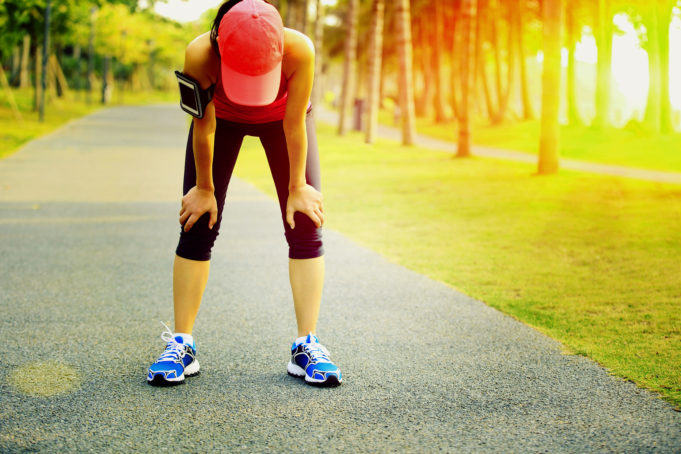Anaemia
Feeling tired, lacking in energy? Could you be anaemic? Should you take some iron? These are questions often batted around the UKSportsChat arena. Take this one for example: So it turns out I’m anaemic- can anyone shed any light on how that will/does affect my fitness and running?
Everyone agreed performance reduces with anaemia and the community were straight in there with lots of really good advice about iron rich foods and taking supplements BUT it’s not quite as simple as it sounds and I think it’s an important topic to look at in more detail.
What is anaemia?
The blood is made up of red blood cells, white blood cells, platelets and proteins all floating about in a fluid called plasma. The red cells contain haemoglobin which attaches to oxygen and transports it around the body, the white cells fight infection and the platelets make your blood clot if you’re bleeding.
Being anaemic means you don’t have enough red blood cells or enough haemoglobin.
Red cells are made in the bone marrow deep within our bones. Each red cell lasts about 100 days so the marrow is constantly making new ones.
Why do you get anaemic?
There are two reasons to become anaemic, either you aren’t making enough red cells OR the red cells are being used up too quickly.
To make red cells you need a proper functioning bone marrow and lots of iron but also some other ingredients too.
Clearly a problem with the marrow itself can affect red cell production but these conditions are thankfully rare.
A lack of iron will lead to anaemia, this is the commonest cause of anaemia in the UK. You might be short of iron if you aren’t eating enough because your diet is poor OR your body is not absorbing what you do eat. Conditions like coeliac disease or Crohn’s disease may lead to poor absorption of iron.
You can also be short of iron and anaemic if you’re using it up very quickly, this can happen when you’re pregnant or breastfeeding. It also happens if you’re losing blood, this can be obvious such as with heavy periods BUT it can happen silently and slowly and this is where we need to be careful. You may see fresh blood in your urine or stools and this definitely warrants a GP appointment. You can also however lose blood in your stools without knowing it. It can make the stools black if there’s a lot present but a small amount may go unnoticed and over time this can lead to an iron-deficiency, but it can also be coming from something more sinister like a cancer in the stomach or bowel. This is why I say, “Don’t just take iron”.
If you have a poor diet or heavy periods and no other symptoms then of course these are the cause of your iron-deficiency anaemia, but if you don’t, then the situation needs careful assessment and you may need some further tests and investigations.
Other causes of anaemia occur. Rather than a lack of iron you can become anaemic due to a shortage of Vitamin B12 or folate. This is much less common than being short of iron and again may be due to conditions leading to poor absorption, some of which are hereditary. This can be investigated and treated by your GP.
Long term health conditions like kidney disease and rheumatoid arthritis can also make you anaemic.
Take home message
Thankfully anaemia is something GPs are used to dealing with. When you’re training make sure you eat a varied iron-rich diet but:
If you’re think you may be anaemic, don’t just top up with an iron supplement, you need a blood test. If you are anaemic you need a discussion with your GP to determine the cause.
Check out Dr Julies blog here.






